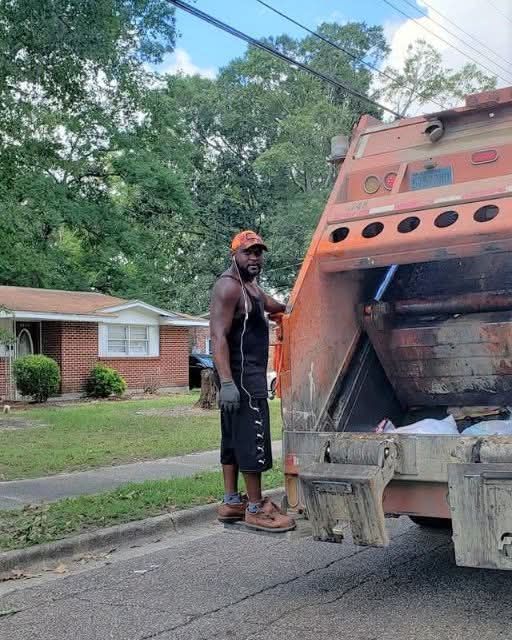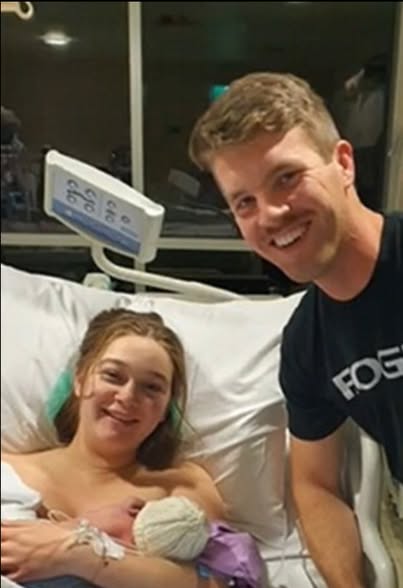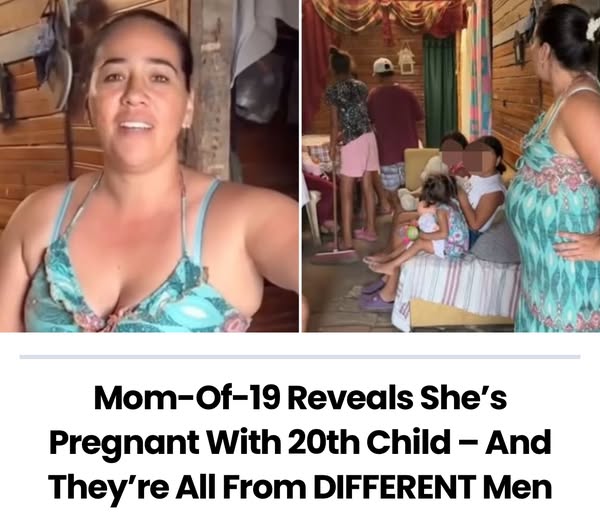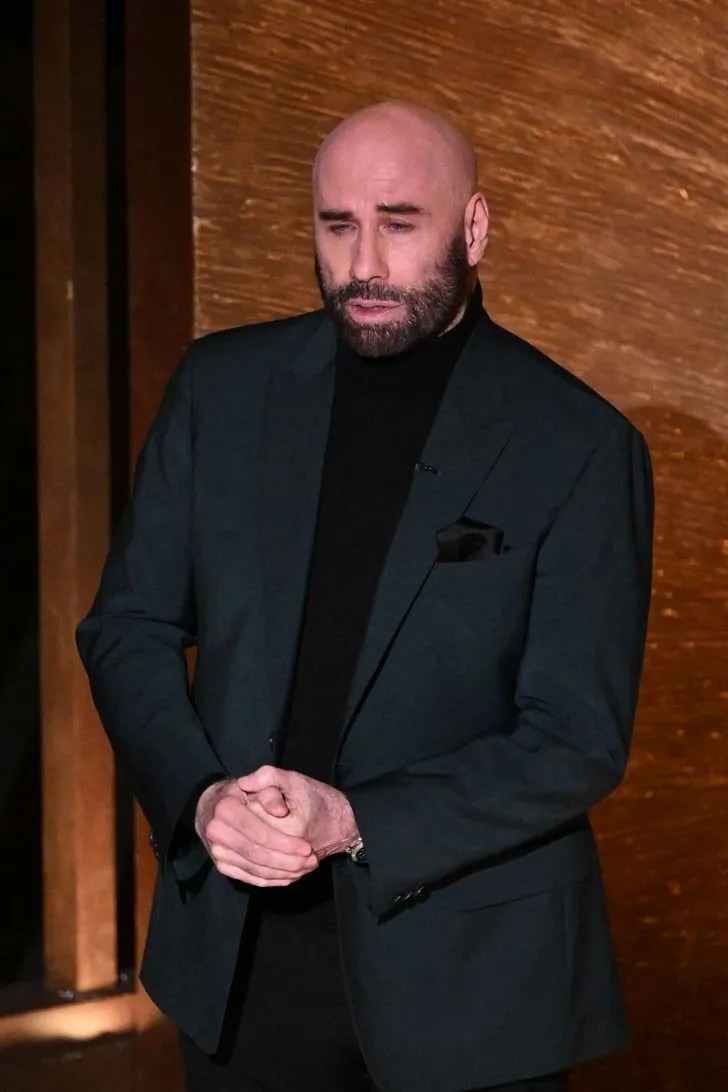HE RETURNED HER TRASH CAN EVERY WEEK, BUT TODAY, SOMETHING WAS DIFFERENT
It started like any other morning—just another routine trash pickup. But then I saw him. The same sanitation worker I’d noticed a few times before. Only this time, something was different.
He didn’t just empty the bin and move on. He carefully wheeled it back to the side door of the small brick house, just as he always did. No rush. No fuss. Just a quiet, deliberate act of care.
Curious, I approached the elderly woman sitting on the porch. She smiled, gentle and warm. “That man? He’s been doing that for me every week,” she said. “Ever since my husband passed. I can’t manage it on my own anymore.”
I looked back at the man, feeling a weight in my chest that I couldn’t quite explain. Then I noticed he wasn’t heading back to the truck right away. He stood there, still. His gaze wasn’t on the house—it was fixed on a single window. In the glass, taped from the inside, was a faded black-and-white photo of a young couple beside what looked like a brand-new garbage truck. The resemblance between the man in the photo and the sanitation worker outside was undeniable.
Before I could say a word, the woman called out to him. “Malcolm! Is everything alright?”
He turned slowly, pale and visibly shaken. “Mrs. Calloway,” he said, his voice thick with emotion, “is that… is that my dad in your photo?”
Mrs. Calloway froze, her knitting needles clattering to the porch. For a long moment, silence stretched between them. Then she motioned to him. “Come inside,” she whispered. “We need to talk.”
Inside, in the warmth of her living room, she pulled out an old scrapbook. Flipping through pages that smelled of time and memory, she found the photo—another version of the one taped in the window. This one showed three people: the young couple, and standing proudly beside them, a teenage Malcolm.
He stared at it, hands trembling. “I don’t understand,” he said softly. “How do you have this?”
She placed a hand over his. “Your father worked this route for over twenty years. He was kind. Reliable. Thoughtful. Just like you. After my husband died, he brought my trash can back every week. Never asked. Never missed a day. It meant everything.”
Malcolm’s throat tightened. His father had passed when he was only eighteen. He’d never known this side of him—never heard the stories. All he knew was that his dad took pride in his job and in helping others. But hearing how deeply he had impacted Mrs. Calloway’s life stirred something powerful inside him. It was grief, yes—but also pride.
“I didn’t know,” Malcolm whispered. “He never said anything.”
“He didn’t need to,” she said, smiling through tears. “Your father believed in quiet kindness. In doing what’s right, even if no one noticed.”
That afternoon, Malcolm left with more than just answers. He left with purpose.
He drove straight to his mother’s house and showed her the photos. Her eyes softened instantly. “Of course I remember those,” she said. “He loved that route. He loved helping people. And Malcolm, you’re so much like him. You have his heart.”
In the days that followed, something changed in Malcolm. He began to see his route differently. He looked for chances to help—offering a hand with groceries, waving to children in windows, checking in on the elderly. Word spread quickly about the sanitation worker who did more than pick up trash—he connected, he cared.
Neighbors began leaving thank-you notes on their bins. One family hung a sign that read, “THANK YOU, MALCOLM!” Another invited him to dinner, where they shared their own stories of struggle and hope. Each interaction reminded Malcolm that his job was more than a task—it was a chance to carry on his father’s quiet legacy.
Years later, when Malcolm retired, the community gathered for a surprise celebration. Mrs. Calloway, now in a wheelchair but smiling brighter than ever, presented him with a framed collage of photographs documenting his journey. In the center was a note in bold letters: “YOUR FATHER WOULD BE SO PROUD.”
Standing in that room, surrounded by people he had served and touched in quiet ways, Malcolm felt something he never expected—peace. Fulfillment. He hadn’t just followed in his father’s footsteps; he had widened the path.
Sometimes, the smallest gestures echo the loudest. Whether it’s wheeling a trash bin back to someone’s door or simply offering a smile, every act of kindness leaves a mark. In choosing compassion, we create legacies that stretch far beyond our lifetimes.
If this story touched you, share it with someone who could use a reminder of the lasting power of simple, selfless kindness.






